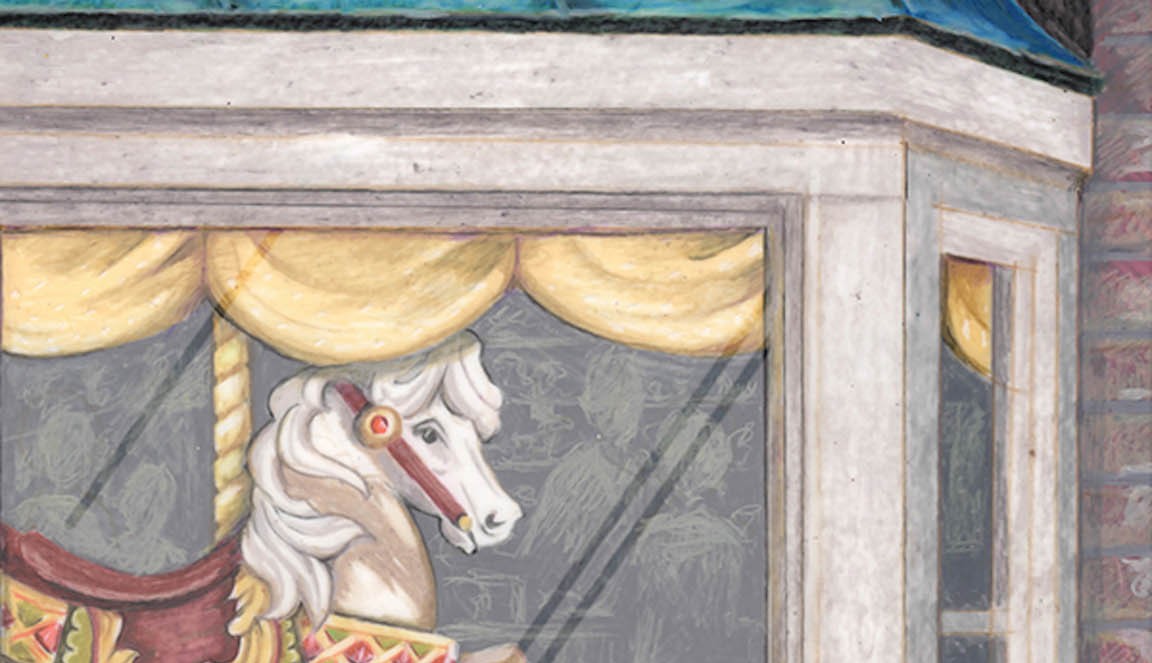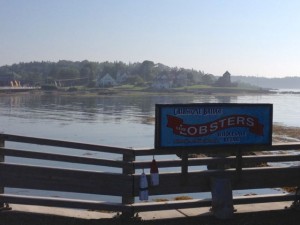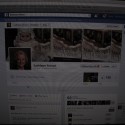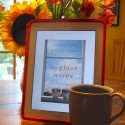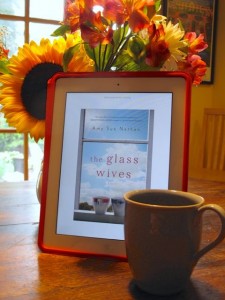Month: July 2013
What I am Reading – The Irresistible Blueberry Bakeshop & Cafe
“Romance is everything.” – Gertrude Stein
I am sitting here on Bailey Island, Maine writing this recommendation. Emails from friends at home tell me the temperature hit a hundred degrees today in New Hampshire. Here on the island, we have an ocean breeze and I would call it pleasant. I can see the hammock overlooking Mackerel Cove from my writing room window. It is only natural that the book I am recommending for you is set in a place called Beacon, Maine.
The Irresistible Blueberry Bakeshop & Café by Mary Simses is the perfect read for a hot summer day. Successful corporate lawyer, Ellen Branford, arrives in Beacon to fulfill a promise to her recently deceased grandmother. She is there to locate an old boyfriend of her grandmother, Chet Cummings, and deliver a letter as she had promised.
The Irresistible Blueberry Bakeshop & Café is Simses’s debut novel and she follows the writing standard of making something happen early in the story, by having Ellen fall through the rotted boards of an old pier into the frigid Maine ocean waters in the first paragraph. She is saved from drowning by a sexy carpenter who leaps into the water to rescue her.
The story unfolds to reveal all is not as it first appears, not Ellen’s grandmother, Ellen’s savior, or Ellen, herself. To say too much more, would spoil it for you. It is fun to watch Ellen, now known as “The Swimmer” in Beacon, slowly shed her uptight Manhattan attorney outer skin and evolve into someone quite different from the young women who almost drowns in the first two pages.
The Irresistible Blueberry Bakeshop & Café is a fun novel. Mary Simses does a great job with her supporting cast including Ellen’s fiancé, Hayden, her mother, and Roy, the man who rescues her. This is Maine at its best, right down to those blueberries. I hope you enjoy it.
Facebook’s Siren Song
“One can be absolutely truthful and sincere even though admittedly the most outrageous liar.” – Henry Miller
It is considered a “Best Practice” of blogging to end each post with a question. The point being, if you end with a question, you will stimulate your readers to make a comment. I admit that I haven’t had much luck with that, and as was recently pointed out to me by the anonymous blog reader I live with, I haven’t been doing it in my last few posts.
Today, in an effort to change things, I am going to start with a question. How soon after you get out of bed do you log onto Facebook? You get up, brew your coffee, and log on. Right? Okay, maybe you don’t, but the chances are great that you are “on Facebook” at some point because you are reading this blog.
Writers are funny. We are just like you, each with our own unique pluses and minuses; we also are constantly observing and taking notes. What I have noticed is that Facebook provokes a whole spectrum of reactions. From what I have observed, people fall into three general categories: Love, Indifference, and Terror.
People who love Facebook are “on” it constantly. “Wait, just let me check my Facebook.” Do you say that? Are you one of those people who live your life in fear that you might have missed “liking” something? Have you ever said, “I can’t believe that she or he didn’t like that!”? Do you often push poignant, patriotic or religious requests to “please like this page or picture” out to you friends? If you answered yes to these questions, then you love Facebook.
Indifferent Facebook users are people who originally got “on” to please someone else. They are told, “You have to get on Facebook.” So they do. These people can by spotted instantly when they have no profile picture. You often hear them saying, “Nah, I’m never on that thing. Who has time for that?” However, they often know or even better, live with, someone who loves Facebook and that person or persons reports back to them all interesting developments. My husband falls into this category. He misses nothing but remains pure. Sometimes these people even check Facebook out themselves. The difference is, they don’t hear its siren song.
Terrified peopled are those who believe Facebook will steal their souls, their spouses, children, pets, home, money, etc. I know some of these people. They believe Facebook is out to destroy them and all civilized society.
My Facebook story began with little fanfare five years ago. I had a friend who was battling cancer who asked me to join and be friends with her. I would have done anything she asked me to; it was not a big deal to signup. I made the usual mistakes like posting what should have been a private message on my page. Fortunately, the message was pretty tame, so no harm was done.
My daughter moved to Ireland in 2009. Facebook provided me a way to know what she was doing in real time and also chat with her spontaneously. I saw pictures of her new friends and the neighborhood where she lived. It was a wonderful way to stay connected.I have two nieces in Arkansas I have never met, but because their mother post videos of them on her Facebook page, I feel I know them. After I published my book, MacCullough’s Women, I set up an author page to connect to my readers.
Facebook is not without drawbacks. Like most powerful tools, it should be used with care. The information you place on your Facebook page can be seen by others and may be remembered. People both stalk and lurk, so security and privacy is critical.
I think, used correctly, Facebook is a good thing and brings people closer. I do check Facebook everyday, sometimes before I have my coffee. What about you? Which category do you fall into?

What I am Reading – The Glass Wives
Why did God make women so beautiful and man with such a loving heart?”― Walker Percy, Love in the Ruins
I was intrigued by the idea that a wife and an ex-wife could be friends when I was working on the plot of MacCullough’s Women. I wanted to write a novel that explored that idea. I concluded while it makes perfect sense – obviously they have at least one BIG thing in common – the only way it might work would be if the husband in question was dead. I added that element to the plot ; and MacCullough’s Women was born.
I am not alone in exploring the idea in fiction. If you read a lot, you know very few plots are unique. Human behavior being what it is, not all that much changes besides the supporting details; letters written with quill and ink give way to texting. I was intrigued to see what Amy Sue Nathan would do with the idea in The Glass Wives.
The plot of The Glass Wives swirls around the two wives – Evie, the first wife and Nicole, the second –and the three children of the late Richard Glass. Some of the story is predictable; Richard leaves Evie and their twins for Nicole, his much younger hair stylist, and then has a baby with her. I found it confirming my own theory when Nathan chose to kill off the husband as a means of opening a path between the two women that doesn’t exist while he’s alive. This is not a spoiler; the reader knows he’s dead in the first chapter. Money – who has it, how much is enough and where and how to get more of it – drives a lot of this plot. This is often the case in blended families and Nathan does an excellent job of portraying its impact on the two women.
The Glass Wives examines how a family is formed and mutates in today’s world where people are often brought together through divorce and remarriage. The novel is the story of what comprises a family as much as it is about the relationship between the wives. The make up of family, both what it means to be one and what it consists of, is featured in a lot of women’s fiction today. This makes sense to me because historically it is women who nurture family.
I hope you enjoy the book. Do you think wives and ex-wives can be friends?
The Art of Un-Nesting
“If you see an adverb, kill it.” – Mark Twain
I have read quite a lot about the art of nesting. What I think we are doing here in the second week of the new normal could be called un-nesting. Viewed through the eyes of a writer, it could also be seen as editing. After twenty plus years together, more than eighteen of them spent in this house, we have accumulated and saved too much stuff. Our life is the equivalent of adverbs run amuck.
Once again, I am reminded writers see things differently. This is a politically correct way of saying we are all a little strange. My husband and I made the decision to “unstuff” our lives a few weeks ago. It seems like the ideal time. to do it. We both are free to work on the project. The basement – really in this house, built in 1922, it’s a cellar – is a very pleasant place to work. The attic, on the other hand, is an anteroom of hell in July.
As we go through our collected files, stacks, and shoeboxes, I think of my father. The week before his sudden death, he cleared out his own papers and other saved objects leaving only neatly rolled socks and folded handkerchiefs behind in the drawer. My mother’s death was not sudden but she handled a life’s worth of accumulated papers and other treasures in the same way. When my sister and I went through her things after her death, we only saw what she wanted us to see and nothing more.
I have also been present when this was not the case. My memories of what happened then are not pleasant ones. My daughter still shutters when she describes what she calls “The Raid” family members made on the possessions of an elderly relative who left it all up for grabs. My husband and I decided we would prefer to do our own editing, thank you very much.
This is not an activity for the faint-hearted. There is a poignancy involved in going back through the years. Each document or squirreled away program, ticket stub, memorial prayer card, or object tells a story. Sometimes, we come across a photograph taken of a happy event, such as a wedding, where the story did not have a happy ending. Even though we are doing it together, it has turned out to be for the most part a solitary task for each of us as we sit sifting through items, awash in memories.
As I have gone through cards, bills, bank documents, report cards, cancelled checks, etc. deciding what goes to the shredder and what to save, it occurs to me the shredder is the green equivalent to the method my father used which was fire. The results are the same. Gone. Hidden from prying eyes and what my mother used to call “cheap talk.”
The writer in me turns back to my characters. I ask myself what would they save and why? What would their choices tell my readers about them?
“Where do you get the ideas for your stories?” This is perhaps the question I am most often asked when I go to book groups or someone learns I’m a writer. Nestled among the papers my sister and I found when we went through the documents my mother saved was the funeral bill for the sum of fifty dollars to bury my infant brother forty-two years before. It was mark paid in my mother’s handwriting.
The daughter’s heart breaks, but the writer takes note.
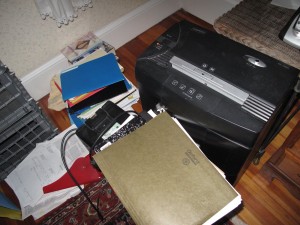
Beginning the New Normal
“The only sense that is common in the long run, is the sense of change – and we all instinctively avoid it.” – E.B. White
I am in Maine experiencing the first day of what I am calling the new normal. It is the new normal because the plan is for us to spend equal or more of our time this summer here in Maine and my husband will be enjoying his first summer of working from where we are in forty-five years.
I have owned a home on Bailey Island since 1988 and I have been coming to the island since 1981. Bailey Island is the third in a string of three small islands connected by bridges accessed from Brunswick, Maine, U.S.A. Because you don’t have to take a boat to the mainland, you do not feel completely away but you are still fifteen miles from anywhere like civilization (in the interest of full-disclosure there is a small general store here on the island and a handful of restaurants.)
Our house doesn’t have a television. I can honestly say we have never missed it – although this may not have been true of the friends and relatives who have passed through over the years. We have relied on books, games, one another, and more books to entertain ourselves. This year because of my need to use the Internet we figured out how to connect to that and with it: Facebook, Twitter, and email.
Our day began with what we plan on being a daily walk from our house to the bridge, a four mile round trip march. The plan this summer is for me to write, write, write and finish Francesca’s Foundlings. In so many ways this is the ideal spot to do that. There are few interruptions and time to plot and carry on conversations with people only I can see.
I do have an outline for Francesca’s Foundlings. An outline that both my characters and I rebel against – perhaps it’s because I spent the seventh grade rebelling against the nun, Sister Daniel Joseph, who taught me how to outline. Intensely frustrated, I complained about this to my fellow writer, Mike Robertson, when I saw him in April. “Just write the scenes,” he said. “Worry about where they fit when they’re all finished.” It was as if a shadow lifted. This was exactly the way I had written MacCullough’s Women. I actually wrote chapter five of that book first. Some writers strictly adhere to an outline and some, like me, do not. I was back in the writing business.
Last week I read through all the chapters I have already written and I was delighted to discover I really liked the book. There are some new characters along with the ones you have already met in MacCullough’s Women. It is going to be a busy summer here on Bailey Island.

